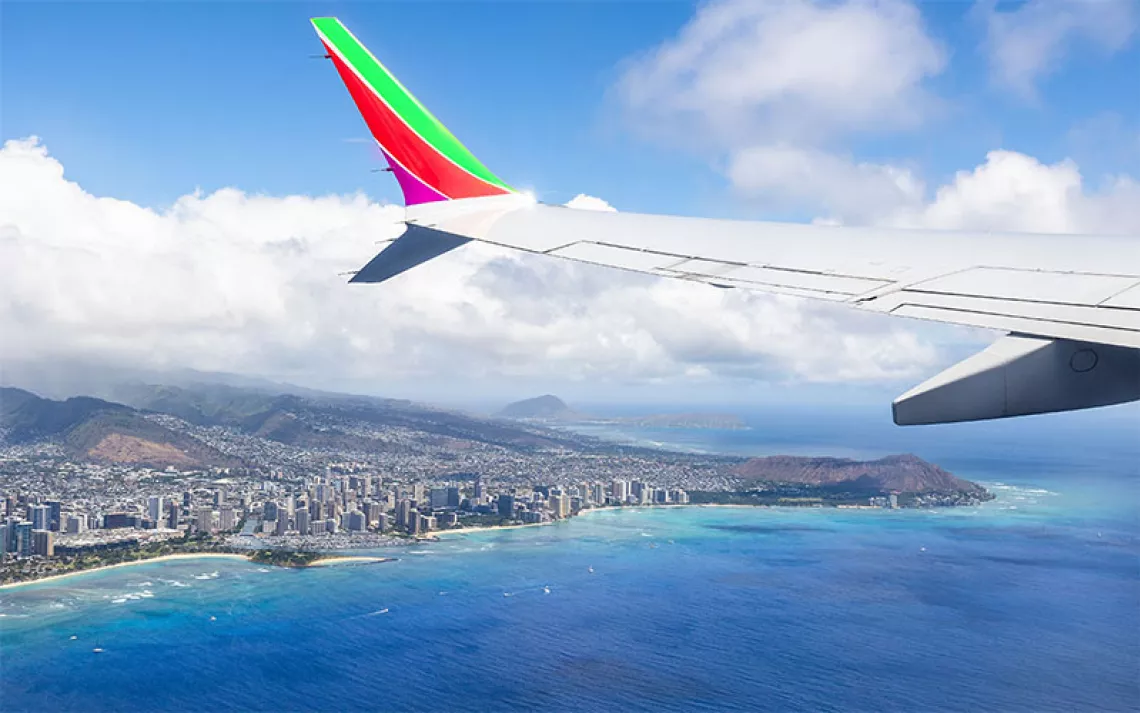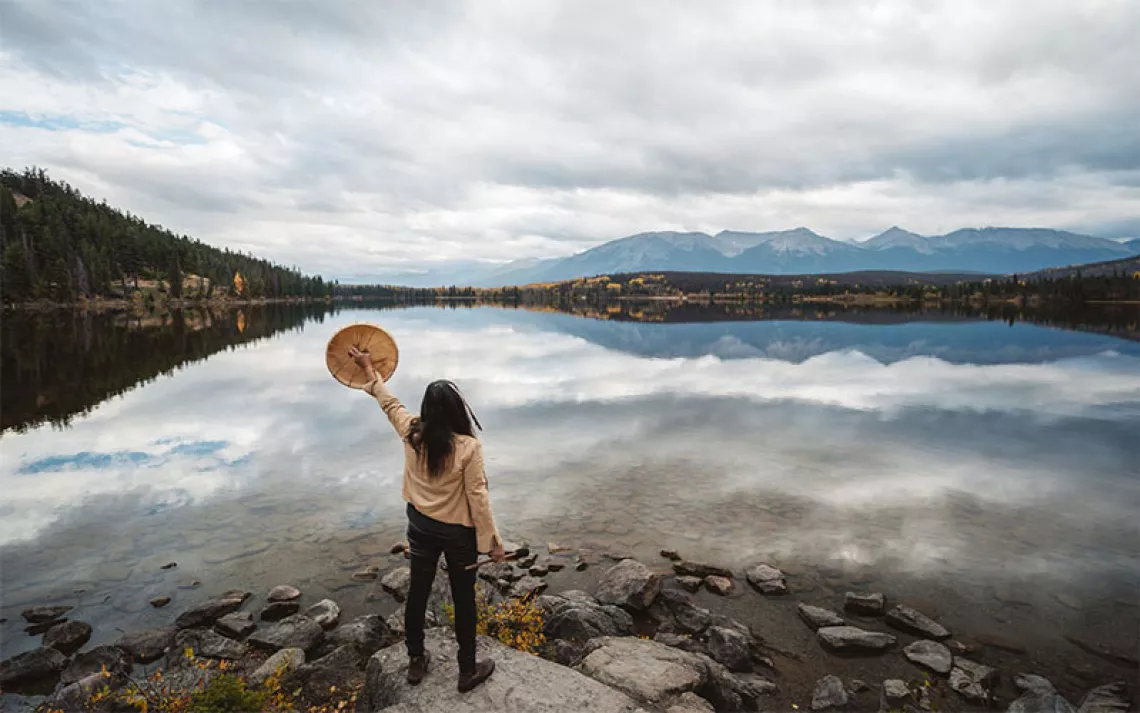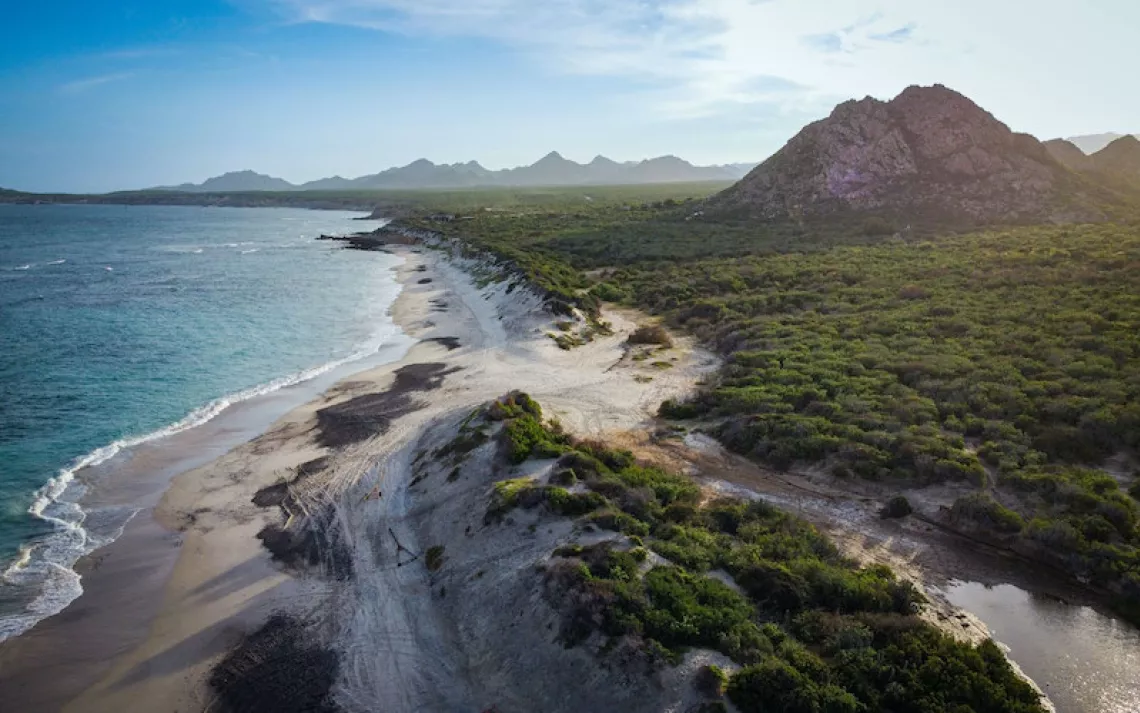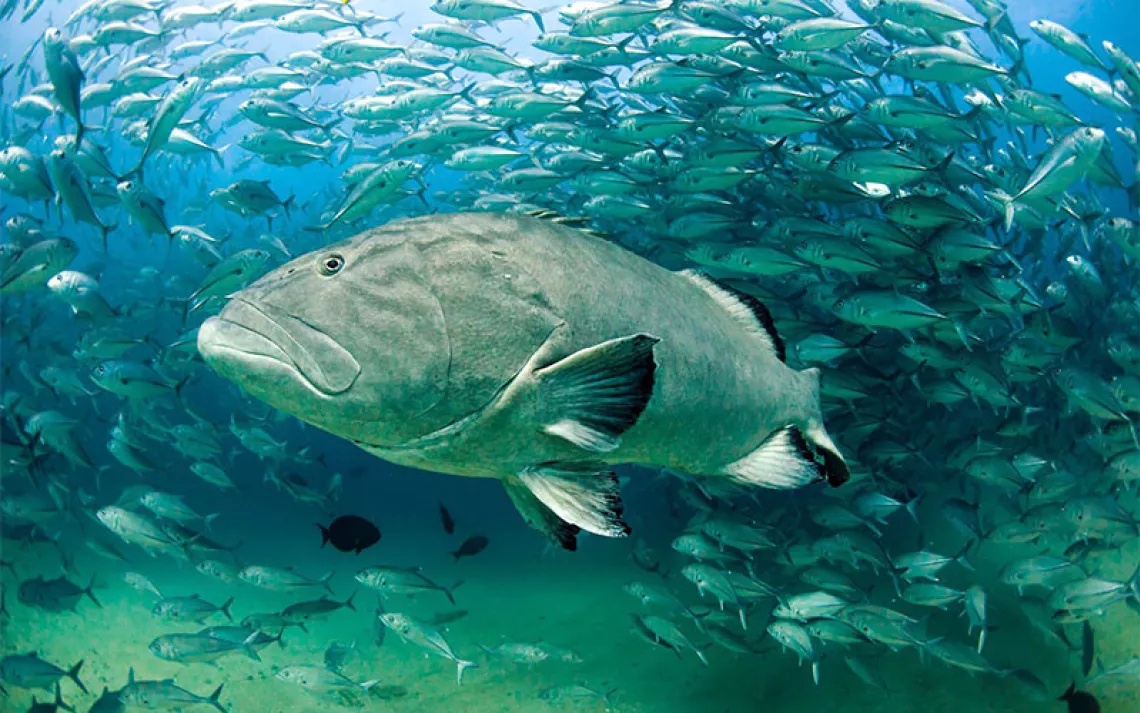No Time for Tame

Video by Tandem Stills + Motion
Something called the Wilderness Hotel and Golf Resort pops up near the top of a Google search for "wilderness." I find that disorienting. No matter how many waterfalls, geysers, and "lazy rivers" that 600-acre Wisconsin Dells water world boasts, no place offering Klondike Kate's Libations is wild enough to get a person lost, or found.
"The idea of wilderness needs no defense," Edward Abbey famously wrote. "It only needs more defenders." Yet on the 50th anniversary of the Wilderness Act, the idea of wilderness, once almost universally embraced as a defining symbol of American character, is, as Kenneth Brower notes in this issue, at risk.
I'm not just talking about the more demanding (and in hindsight, obvious) questions we're asking ourselves lately: Uh, exactly when was North America, to quote the Wilderness Act, "untrammeled by man"? And did whoever came up with that definition get the Cherokee's, Cheyenne's, Miwok's, or Apache's take?
And I'm not talking about the more academic--neurotic?--debates some folks have been having about dualism, social constructs, and the nature of nature in the Anthropocene.
What I'm talking about is the apparent waning of the simple idea that there is profound value in disappearing for a while into the most remote parts of our nation's deserts, mountains, and oak savannas.
"The clearest way into the Universe," John Muir said, "is through a forest wilderness." And I've seen enough city folk stare up at a truly dark night's stupefying splatter of stars to know that there's more than mystical rhapsody to that claim. In wilderness, the immortality we glimpse in Earth's speckled black ceiling is just one fleeting rumination away from the raw sense of mortality triggered by the growl of a rockslide, the snort of a bear, the crack of lightning splintering a sycamore.
Aldo Leopold once noted that "wilderness is a resource which can shrink but not grow. . . . The creation of new wilderness in the full sense of the word is impossible."
It's tempting to wonder if Leopold would have trouble defining the term today. Might Muir be attracted away from Yosemite's backcountry by the array of ersatz experiences that approximate the adventure our human nature craves? Could Abbey win converts to the wilderness-preservation gospel when the World Wide Web awaits 24/7 exploration?
In the end, I advise against overthinking such matters. I've talked to lots of people who say that their finest wilderness moments unfolded as their thoughts flowed at the languid pace of ice melt. As their neurons fired in rhythm with a chattering scrub jay. As they pondered life from the perspective of a lizard sunning on a granite slab.
That's kind of the point, and it's more important than ever now to understand it. Waterslides and swim-up bars have no doubt contributed mightily to humankind's happiness and Americans' sense of self. But do we really want to contemplate life, death, and eternity while straddling a Styrofoam noodle, sipping margaritas in the Dells?
 The Magazine of The Sierra Club
The Magazine of The Sierra Club



